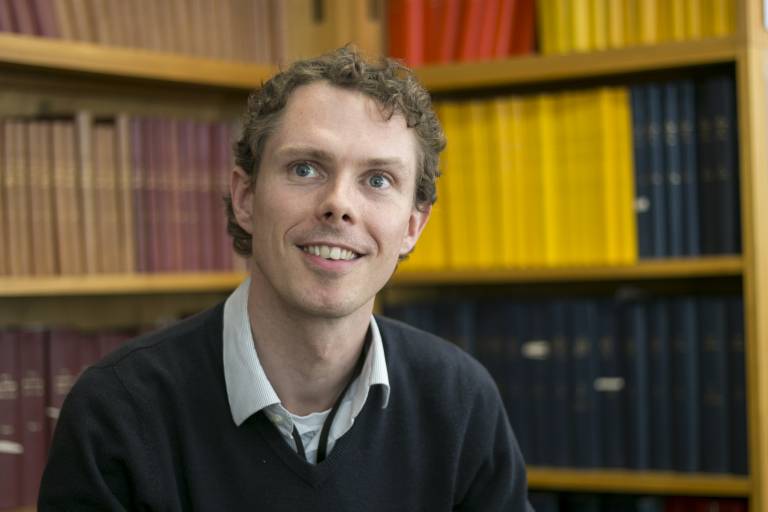UKRI Future Leaders Fellowship - Peter Keating
30 October 2019
Peter's research will focus around the 'Impact of developmental experience on spatial hearing in noisy environments'.

Dr Peter Keating is a Rosetree Fellows researcher here at the UCL Ear Institute who has just been announced as a UKRI Future Leaders Fellow in their second round of awards. Peter becomes the second UCL Ear Institute member to be awarded this still new type of Fellowship, following Marta Andres Miguel who recieved hers earlier this year.
Peter took a quick break away from his research to answer a few questions.
You are in the second cohort of UKRI Future Leader fellowship – how are you feeling at the prospect?
I’m really looking forward to it! The Ear Institute is a fantastic place to do hearing research and I feel extremely lucky that I get to build my own lab here and work with a bunch of amazing people. Also, having spent so much time planning out what I want to do (and explaining to others how important it is that we do this!), it’s really exciting to finally get the opportunity to do it. But I’m mostly grateful to all the many people, at the Ear Institute and elsewhere, whose support made it possible.
What will your first steps be in developing your research?
As a Rosetrees UCL Excellence Fellow, I have had a wonderful opportunity to develop my own research at the Ear Institute and take some of the first steps toward establishing my lab. However, the UKRI Future Leaders Fellowship will allow me to hire a post-doctoral researcher for the first time and buy new state-of-the-art equipment that will allow us to ask entirely new questions on a much grander scale.
What particular questions would you like to have answered by the end of the fellowship?
The main aim of the fellowship is to understand how hearing loss affects brain development, and figure out how this affects listening in noisy environments. I want to understand how the developing brain adapts to hearing loss over time. But I also want to know whether hearing loss derails normal brain development. One specific question is how ‘glue ear’ in children affects how the two ears work together. The bigger question, though, is whether we can diagnose and treat people better if we have a better understanding of how hearing loss affects the brain. More information about my research is on my website (www.auditorybrain.com) – if you’re interested, get in touch!
Are there any particular groups of people or bodies that you are looking forward to working with?
I’m really looking forward to working with all of my collaborators, and am extremely grateful to them for all their support. However, coming from a basic science background, I’m particularly excited by the opportunities the fellowship will give me to work with clinicians and patients (in both the UK and Poland). With the support of the BRC and MRC, I’ve had the opportunity to observe clinics at the Royal National Throat Nose and Ear Hospital. Even in a short space of time, it has been sobering to understand the many ways in which hearing loss can affect people’s everyday lives, inspiring to see the amazing job that clinicians do every day, and exciting to figure out how my own research could help make things better.
Finally – this must be keeping you very busy so how do you unwind?
On my better days, I attempt (with varying success!) to play tennis and the violin. I am also interested in identifying ‘robust’ recipes (i.e. recipes that are difficult to mess up even if you’re me).
Links
- UCL's Future Leaders Fellows (second cohort)
- Peter Keating IRIS profile
- Peter's Auditory Brain website
 Close
Close

